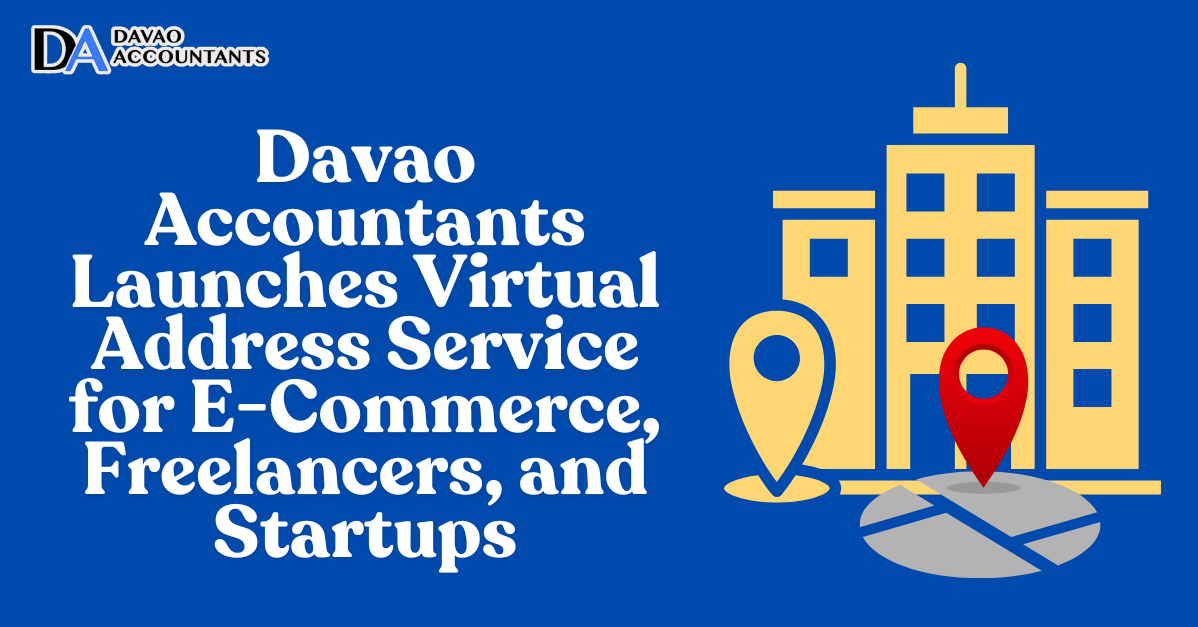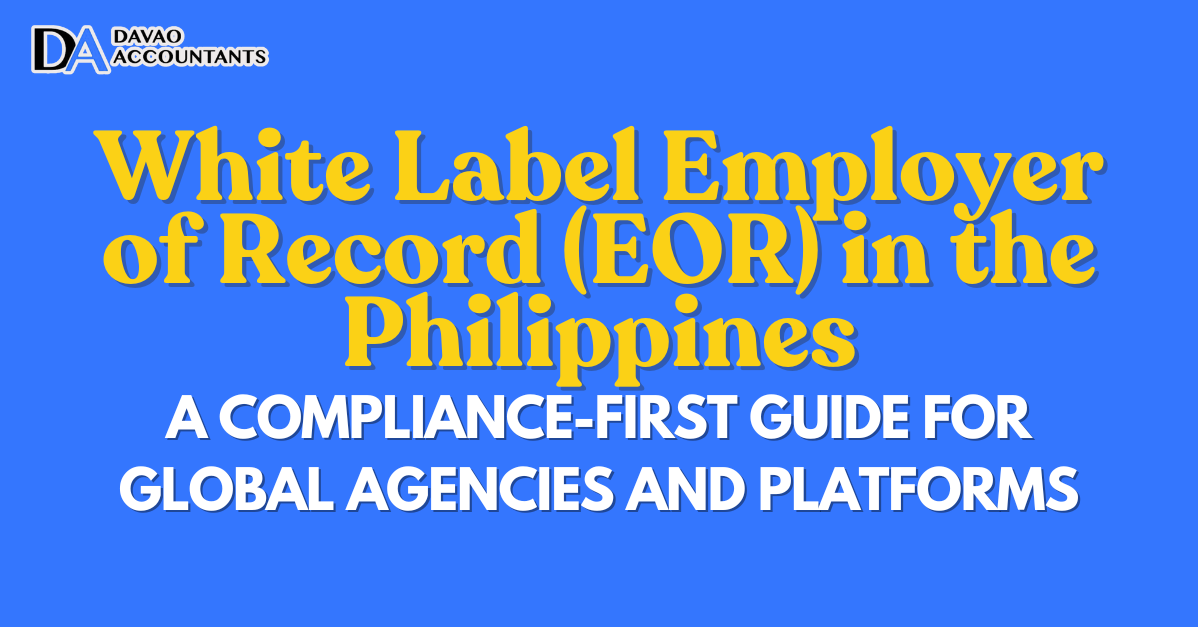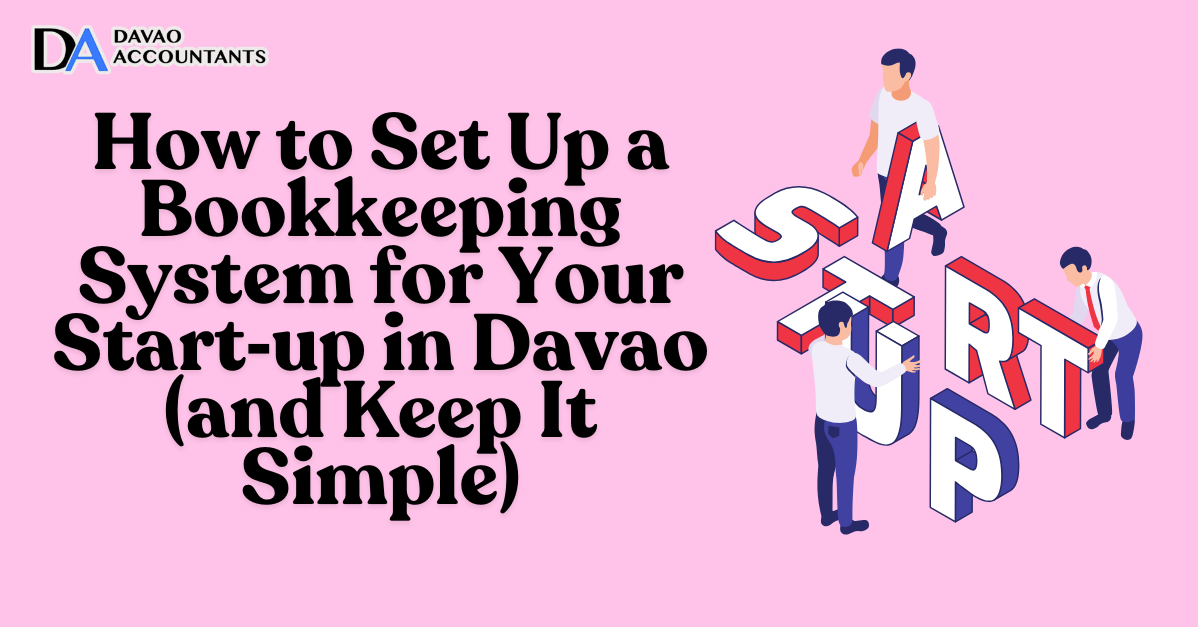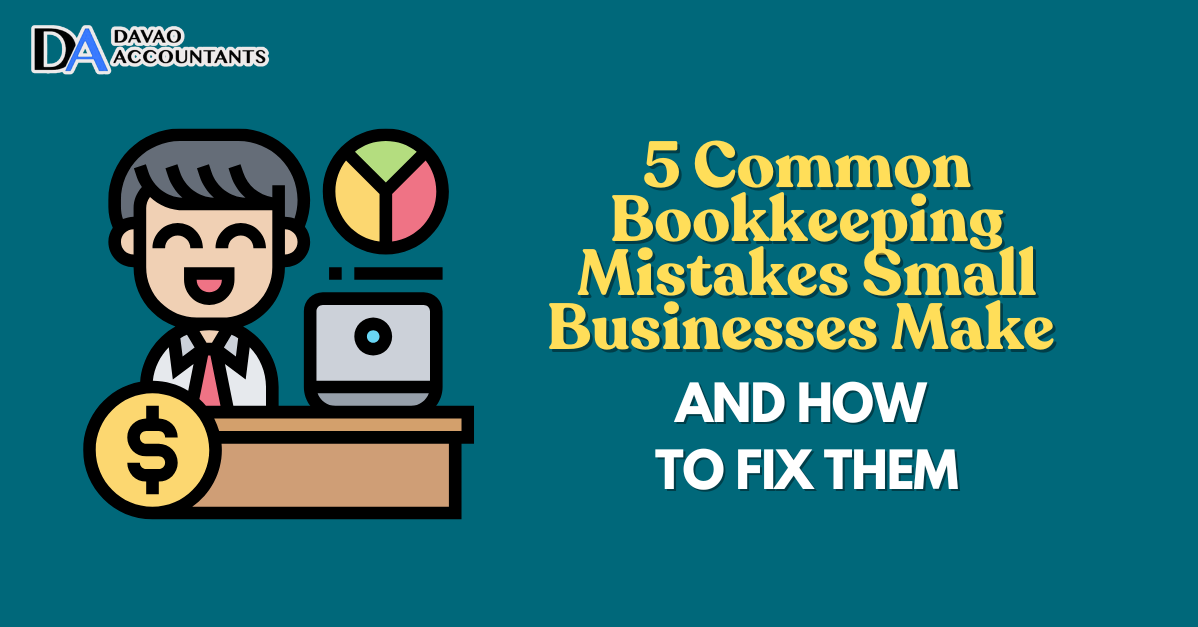Introduction
If you’re starting out as a freelancer or launching a start‑up in the Philippines, one of the first and most important tasks is to register with the Bureau of Internal Revenue (BIR). Proper registration gives you the legal foundation to operate, issue receipts or invoices, file and pay taxes, and avoid penalties down the line. Getting this right from the beginning means less stress and a more straightforward path to compliance.
At Davao Accountants, we’ve helped many freelancers and small businesses in Davao City and beyond navigate this process. In this guide, we’ll walk you through what registration entails, why it matters, step‑by‑step how to do it, common pitfalls, and tips to make the process smoother.
Why BIR Registration Matters
Even if you’re working from home, doing side‑gigs, or running a small online shop, registration with the BIR is not optional—it’s required if you earn income in the course of business. Some key reasons why registration is vital:
- Legal recognition: Your business or freelance activity becomes formally recognised.
- Compliance and avoidance of penalties: Without registration, you may face fines, back taxes, or stricter audits.
- Ability to issue official receipts/invoices: Clients—especially business clients—may require receipts or invoices from you.
- Access to tax regime choices: Registration is the gateway to choosing your tax classification (e.g., non‑VAT/percentage tax, 8% flat rate, VAT if applicable).
- Professional credibility: Being officially registered signals to clients and partners that you take your business seriously.
In short: registration is your foundation. Once that’s in place, everything else (deductions, invoices, filings) rests on it.
Who Needs to Register
Freelancers, self‑employed individuals, micro‑start‑ups, and online sellers all fall under the umbrella of what the BIR considers business or professional income earners. If you provide services, sell goods, or operate online or offline, even as a side income, you likely must register. Some clarifications:
- If you are purely employed under a company and have no side business, you may already have a TIN but still need to register if you start freelancing.
- If you have multiple income sources (employment + freelance), you may fall under the “mixed income” classification.
- If you operate a formal corporation or partnership, you’ll follow a different registration track, but for many freelancers and start‑ups, the self‑employed/sole proprietor route is most appropriate.
Therefore, if you’re reading this and you are doing or planning to do freelance work or a micro‑business, the answer is: yes, you should register.
Step‑by‑Step: How to Register with the BIR
Here is a practical, step‑by‑step process you can follow.
Step 1: Secure or update your Taxpayer Identification Number (TIN)
If you do not yet have a TIN, you need to apply for one. If you already have a TIN (for example, from earlier employment), you may still need to update your registration to reflect your self‑employed/freelance status.
Common steps:
- Fill out the required BIR form (e.g., Form 1901 for self‑employed/mixed income).
- Provide valid IDs, proof of address, etc.
- Visit your local Revenue District Office (RDO) or use BIR’s e‑registration system if available.
- Once accepted, the BIR issues your Certificate of Registration (COR) (Form 2303) and other documents.
Step 2: Complete BIR Form 1901 (Application for Registration)
This is a key form for self‑employed individuals, freelancers, and mixed‑income earners. It captures your personal/business information, nature of business, registration type, etc.
Fill it out carefully—ensure your name, address, nature of business (e.g., “Freelance Graphic Designer”, “Online Content Creator”), and choose your taxpayer type appropriately.
Step 3: Pay any applicable registration/documentary fees
Historically, an annual registration fee and a documentary stamp tax have been required for new registrations. However, recent changes (e.g., under new rules) may affect this, so check the latest BIR guidance.
Keep proof of any payment made, as this will form part of your registration package.
Step 4: Books of Accounts / Official Receipts or Invoices
Once you’re registered, you’ll need to prepare your books of accounts and obtain your Authority to Print (ATP) for receipts/invoices. Steps include:
- Choosing the type of books (manual, loose‑leaf, or computerized) and submitting the required forms to the BIR.
- Applying for Form 1906 (Application for Authority to Print Receipts/Invoices) if you issue official receipts or invoices.
- Ensuring you purchase BIR‑accredited receipt/invoice booklets if required.
Step 5: Claim your Certificate of Registration (Form 2303) and Notice to Issue Invoice/Receipt (NIRI)
Once everything is in order, you’ll receive your COR and NIRI from the RDO. These documents officially recognise you as a registered taxpayer.
Display them (as required) and keep the originals safely in your records.
Step 6: Begin issuing official invoices/receipts, keep records, and file accordingly
It’s not just about registration; once registered, you must comply: issue invoices/receipts when you earn, keep proper records, and file your returns and pay taxes on time.
Key Documents & Requirements Checklist
Here’s a consolidated checklist you can prepare ahead of time:
- Valid government‑issued ID(s) (with photo, address).
- Proof of address (lease contract, utility bill, barangay certificate).
- Filled out BIR Form 1901.
- If applicable: DTI (for business name) or SEC/DTI registration (for start‑ups) if you’re operating under a business name.
- Books of Accounts (manual, loose‑leaf, or computerized) ready for stamping/registration.
- Application for Authority to Print Receipts/Invoices (Form 1906) when you issue official documents.
- Payment of any registration fees or documentary stamp tax (check latest rules).
- Appointment or submission to your RDO or via the online registration portal, where available.
By gathering these in advance, you avoid repeat trips, delays, or missing documentation issues.
Common Pitfalls & How to Avoid Them
Although registration may seem straightforward, freelancers and startups often encounter problems. Here are common pitfalls and how to avoid them:
Pitfall 1: Using an outdated form
Ensure you download the latest version of BIR forms (1901, 1906) from the official site. Outdated forms may be rejected.
Tip: Before you submit, check the revision date at the top of the form.
Pitfall 2: Incomplete or inaccurate information
Errors in your name, address, nature of business, or tax type may delay processing.
Tip: Have someone else review your form before you submit. Keep copies of what you file.
Pitfall 3: Missing required documentary evidence
Lack of proper proof of address, IDs, or business name registration may result in rejection or requests for correction.
Tip: Bring both originals and photocopies of required IDs and proof of address.
Pitfall 4: Ignoring the books of accounts or official receipts/invoices requirements
Registration includes obligations to issue invoices/receipts and maintain books; ignoring this can lead to compliance issues later.
Tip: Plan for cost and time to purchase or set up books and receipts/invoices.
Pitfall 5: Registration delayed, but you already earned income
If you start earning before you register, technically, you are supposed to have been registered and may face penalties or complications.
Tip: As soon as you’re earning or setting up operations, start the registration process.
Special Tips for Start‑ups & Freelancers
Since you’re likely a freelancer or early‑stage start‑up, here are extra-tailored tips:
- Start early: Even before you receive major clients, set up your registration so you’re ready when you invoice.
- Use your home address: Many freelancers operate from home; your business address can be your residential address as long as you use it as your principal place of business.
- Choose your business name wisely: You may operate under your personal name or register a trade name with DTI; the latter gives a more professional brand.
- Consider digital‑first tools: Use cloud invoicing, digital books of accounts, and plan for online filing and payment—this aligns with modern compliance.
- Budget for start‑up costs: Registration, books of accounts, invoice/receipt booklets, possibly DTI business name registration; these costs are modest but should be factored in.
- Keep your RDO informed: If you relocate, change business address, or your nature of business changes, submit Form 1905 to update registration.
- Link registration to tax regime choice: Once you register, you’ll have to decide whether you’ll be VAT‑registered (if you expect high revenue), or use a percentage tax or a flat 8% rate (for certain freelancers). Registration is the entry point to that decision.
Key Take‑aways
- Registering with the BIR is essential for freelancers and start‑ups in the Philippines if you are earning income in the course of business.
- The main steps are: secure/update TIN, complete Form 1901 (and other necessary forms), pay any fees, prepare books of accounts and receipts/invoices, and receive your Certificate of Registration (COR).
- Stay vigilant: make sure you bring the correct documents, use updated forms, and register promptly once you start earning.
- Registration unlocks the next phases: choosing a tax regime, issuing invoices, filing returns, and paying taxes.
- A professional accountant (such as Davao Accountants) can help you speed up registration, ensure you’re set up properly, and avoid mistakes.











